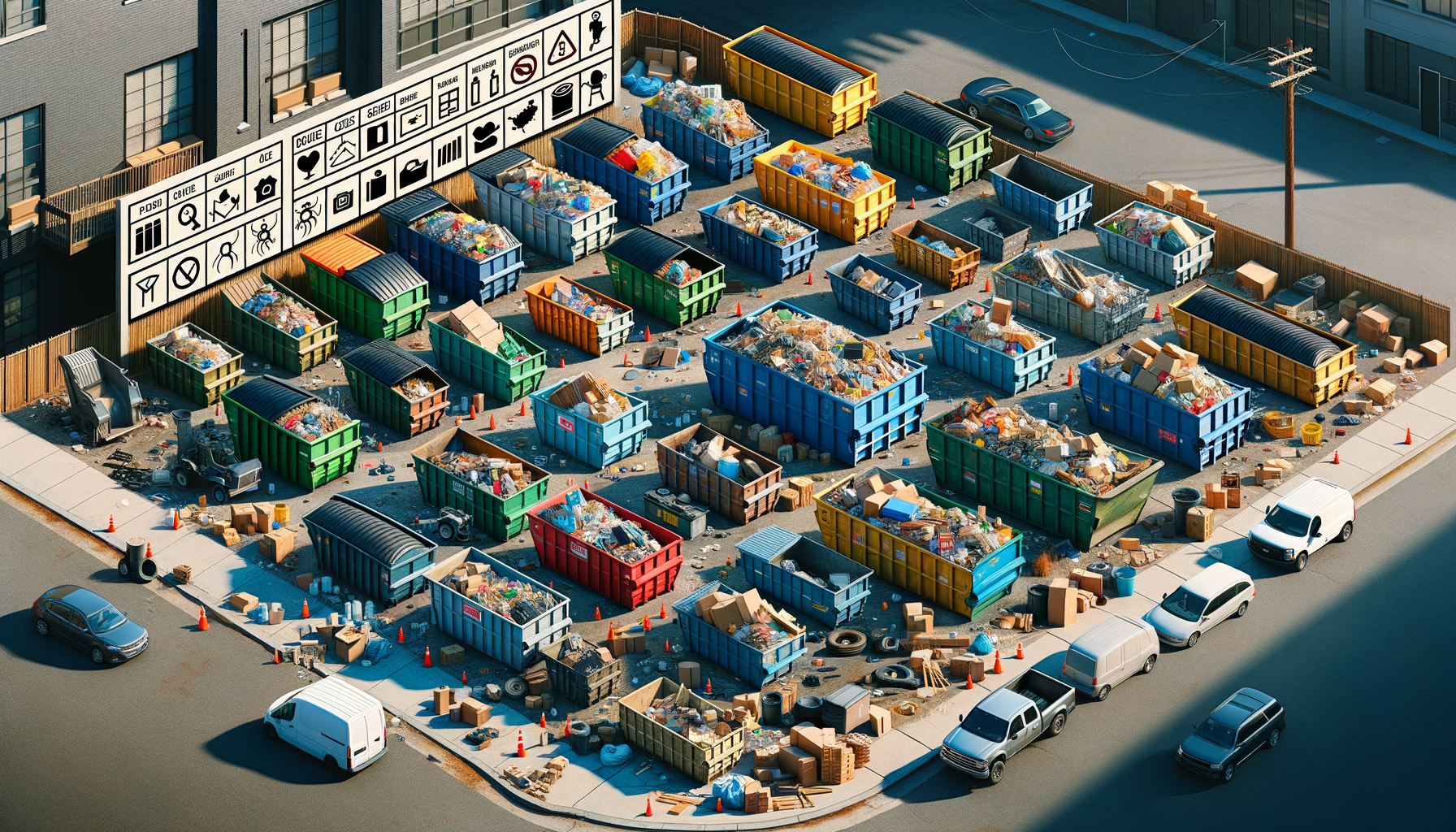Introduction to Dumpster Rental
Whether you’re undertaking a major renovation project, cleaning out your garage, or managing a construction site, renting a dumpster can be an essential part of the process. Understanding how garbage dumpster rental works is crucial in ensuring a smooth and efficient cleanup operation. This guide will walk you through the ins and outs of dumpster rental, from selecting the right size to understanding what materials can be disposed of.
Choosing the Right Dumpster Size
One of the first considerations when renting a dumpster is determining the appropriate size for your needs. Dumpster sizes are typically measured in cubic yards, with common options including 10-yard, 15-yard, and 20-yard containers. A 10-yard dumpster might be suitable for small cleanouts or minor renovations, while a 20-yard dumpster is often used for larger projects like home additions or extensive landscaping.
When deciding on a size, consider the volume of debris you expect to generate. Overestimating can lead to unnecessary costs, while underestimating might require additional rentals. It’s also important to check with the rental company about any specific size recommendations based on the type of waste you plan to dispose of.
Understanding Rental Periods and Costs
Rental periods for dumpsters can vary, typically ranging from a few days to a couple of weeks. It’s essential to understand the terms of the rental agreement, including how long you can keep the dumpster and any fees associated with extending the rental period. Costs can also vary based on the duration of the rental, the size of the dumpster, and the location.
Many companies offer flexible rental periods, allowing you to tailor the rental to your project’s timeline. Be sure to ask about any additional charges, such as overage fees for exceeding weight limits or extra days. A clear understanding of these terms can help you budget effectively and avoid unexpected expenses.
Materials Accepted in Dumpster Rentals
Not all materials can be disposed of in a dumpster, and it’s important to be aware of what is accepted by the rental company. Commonly accepted items include household debris, construction waste, and yard waste. However, hazardous materials like paints, chemicals, and certain electronics are typically prohibited due to environmental regulations.
Before renting a dumpster, consult with the rental provider to get a comprehensive list of accepted materials. This will help you plan your cleanup process effectively and ensure compliance with local waste disposal laws. Proper sorting and disposal of materials can also prevent additional fees for contaminated loads.
Benefits of Dumpster Rental for Projects
Renting a dumpster offers numerous benefits for both residential and commercial projects. It provides a centralized location for waste, reducing clutter and enhancing safety on the job site. This is particularly important in construction and renovation projects, where debris can pose hazards if not managed properly.
Additionally, dumpster rental services often include delivery and pickup, saving you the hassle of transporting waste to a landfill. This convenience allows you to focus on the project at hand without worrying about waste disposal logistics. By streamlining the cleanup process, dumpster rentals can significantly improve efficiency and productivity.
Conclusion: Making the Most of Your Dumpster Rental
Renting a dumpster is a practical solution for managing waste during a variety of projects. By choosing the right size, understanding rental terms, and being aware of accepted materials, you can ensure a successful and hassle-free experience. Whether you’re decluttering your home or managing a construction site, dumpster rentals offer a convenient and efficient way to handle waste disposal, making your project smoother and more organized.




Leave a Reply